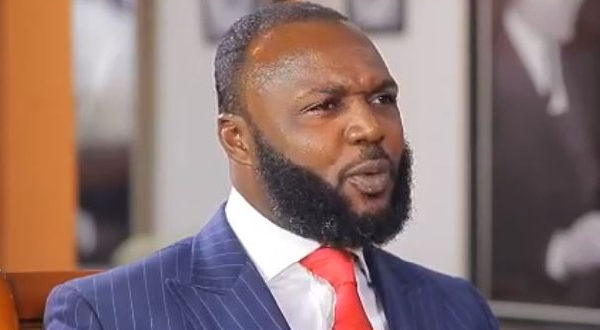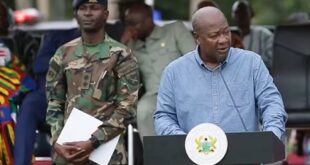An attempt by William Ato Essien, the founder of the defunct Capital Bank to halt proceedings in the ongoing trial has failed.
The court prior to moving the Application for Stay of Proceedings pending a determination of an interlocutory appeal, hinted counsel, that, it was going to dismiss the application unless the lawyer is able to convince the court to change its mind.
Ato Essien, Tetteh Nettey and Fitzgerald Odonkor have been charged for their respective roles leading to the collapse of the bank
They have pleaded not guilty, granted bail and are facing trial.
*Arguments*
Moving the motion on notice for an order Staying Proceedings pending a determination of an appeal filed against a ruling of the court dated 7 April, 2022, Baffour Gyawu Bonsu Ashia, holding brief for Thaddeus Sory, said they rellied on three grounds.
The grounds of the notice of appeal filed on April 22, according to counsel were in relation to the unsigned documents which were admitted into evidence by the court.
Counsel argued that, in an application for Stay, “a party seeking this order ought to demonstrate to this court that special circumstances exist to warrant the grant of such an application.”
He also contended that, the appeal has a real likely chance of succeeding and that, the court in granting an application of this nature will not cause undue delay.
He argued further that, the special circumstance that exists is that, the court may rely on these unsigned documents in the final determination of this matter and that, the admission of the documents may be injurious to the defence of the first accused (Ato Essien).
“As we speak, the person who is alleged to have authored is being subpoenaed to speak to the document as a witness for third accused (Rev. Fitzgerarld Odonkor) which has to do with minutes of a meeting of the board
Counsel again relying on Section 136 of the Evidence Act, said, it makes a precedent of first crossing checking the authenticity of a document before tendering.
“To allow the exhibits into evidence it will be injurious to the defence A1,” counsel argued.
Counsel further argued that, the third accused person in the trial has subpoenaed the author of the alleged documents and to allow the said witness to enter the box (Emmanuel Nokoi) and corroborate the evidence of the third accused person will be injurious to the defence of A1.
“Our appeal has a real chance of success in the basis that the exhibits were admitted in breach of section 136 of the evidence act.
“This appal will not cause any delay because it is in respect of a ruling,” counsel urged.
*No opposition*
There was no affidavit in opposition from the other parties including the prosecution to the application.
The court also explained that, ordinarily, an Application for Stay of Proceedings pending the determination of the interlocutory appeals filed against the admissibility of exhibits (24, 24a, 24b and 27 ought to be granted.
“I have not seen an affidavit in opposition to the application, but it is trite that the fact of non opposition of an application by way of an affidavit in opposition is not an indication that an adverse party was not opposed to the application.
“All that it means is that the adverse party was not in a position to assist the court in coming to a conclusion in one way or the other. And as the law rests in the bosom of the judge it will be an abdication of judicial duty to automatically grant an application simply because there was no affidavit in opposition.”
*Merit of application*
Considering the application on its merit, the court said, in an application of this nature, “the applicant must demonstrate exceptional circumstances to warrant the grant of an order for stay of proceedings of a trial that has taken over two years and is on he verge of completion.”
The court said, for so long, it also laboured under the misconception that unsigned document was inadmissible in court as evidence while making references to Amidu (number 3) v AG, Waterville and Woyome (number 2) 2013/14. 2 SCGLR page 606 at page 658.
*Supreme Court Authority*
The court however said, resident authorities from the Supreme Court demonstrate that the admissibility of an unsigned document per-say is erroneous but depends on the circumstances of the case.
While alluding to the case of ‘John Tenmottey Affuah v General Development Company Ltd, the court, said, an unsigned contract was admitted into evidence.
“Benin JSC speaking for the Supreme Court notes that the validity or otherwise of an unsigned document depends on the circumstances of the case,” he noted to buttress his ruling.
*By Court*
Justice Eric Kyei Baffour, a Justice of the Court of Appeal sitting with an additional responsibility as a High Court judge said, he took pain to point out all those instances because the likelihood of the success of the application is “very bleak.”
“I have taken pains to point this out in this ruling asking for Stay of Proceedings because, the likelihood of the success of the appeal plays a role as to whether a court should grant a Stay of Proceedings or not and in this instance the latest authorities on the admissibility of an unsigned document emanating front the Apex Court as seen in the Tenmottey and Banahene cases has completely appended the rule in Amidu v AG Waterville.
“Accordingly, the prospect of the success of the interlocutory appeals is very bleak and I have no hesitation in dismissing this application.”
The case has been adjourned to May 5, 2022 for the Third Accused person to continue with his evidence.
Source: Kasapafmonline.com
 Home Of Ghana News Ghana News, Entertainment And More
Home Of Ghana News Ghana News, Entertainment And More





